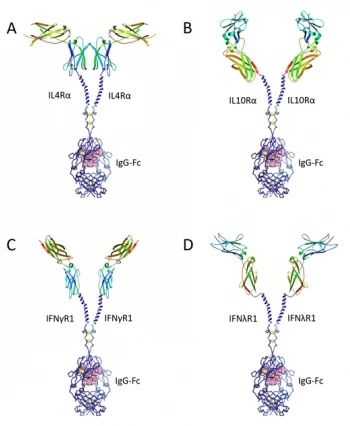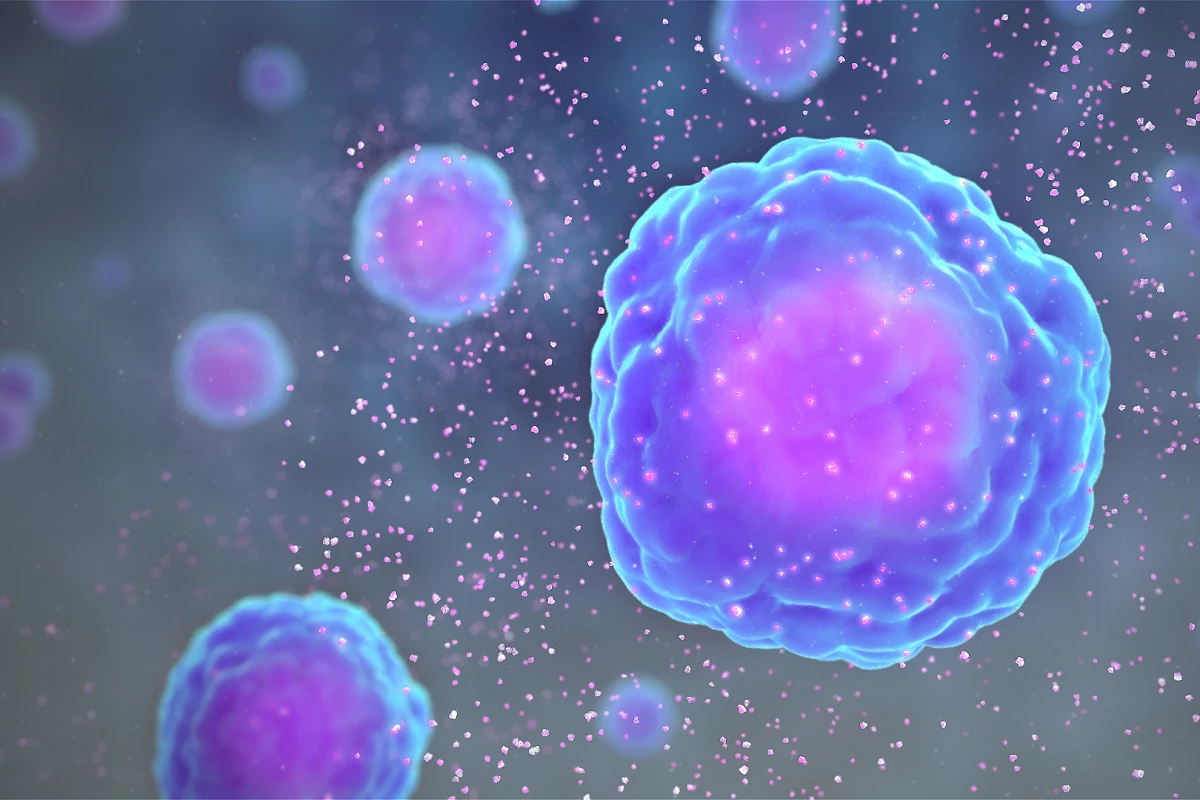When it’s working properly, the immune system is a powerful ally to keep us healthy – but when it turns against us, the results can be devastating. A “cytokine storm” is a dangerous kind of immune overreaction that can be triggered by infection or other treatments. Now, MIT researchers have engineered proteins that show early promise in mopping up these overzealous immune cells.
Inflammatory cytokines are tiny molecules that trigger inflammation in response to injury or pathogens, helping the body begin to heal. However, the body can get trapped in a feedback loop of releasing more and more these molecules, leading to cytokine release syndrome (CRS) – sometimes called a cytokine storm. The condition can be fatal.
Cytokine storms can be triggered by serious infections such as sepsis, Ebola, bird flu, HIV, hepatitis, and more recently, in severe cases of COVID-19. The condition can also arise when the body rejects transplanted tissue, so it’s often a toxic side effect of cancer immunotherapy such as CAR T-cell therapy.
But now, the MIT team may have found a way to treat this potentially deadly condition. Using a method called the QTY code, the researchers created water-soluble proteins that can bind to cytokines.
“The idea is that they can be injected into the body and bind to the excessive cytokines as generated by the cytokine storm, removing the excessive cytokines and alleviating the symptoms from the infection,” says Rui Qing, senior author of the study.
The proteins work by mimicking six different cytokine receptors, allowing them to bind to a wide range of cytokines, such as interferon, interleukin, and a class called chemokines. An antibody segment known as the Fc region is also attached, which helps the engineered proteins last longer in the bloodstream without degrading or being cleared out by the immune system.

In lab tests, the team found that the proteins bind to cytokines about as strongly as the natural receptors do, which raises hope that they may eventually work as a treatment for cytokine storms.
But the team warns about getting too excited at this very early stage. The technique has yet to be tested in animals, let alone humans. The next steps, according to the researchers, are to test the proteins in human cell cultures and animal models of COVID-19 infection.
Any treatment that may arise from this research will be many years away, so it won’t exactly help our current pandemic crisis. That said, it’s still crucial work – tackling this dangerous condition would improve the safety of cancer immunotherapy, with CRS being one of the main problems holding back this promising treatment.
The research was published in the journal Quarterly Review of Biophysics.
Source: MIT




